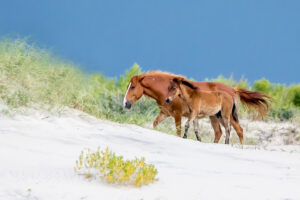

Today, Feathered Quill reviewer Ellen Feld is talking with Julia Soplop, author of Equus Rising: How the Horse Shaped U.S. History.
FQ: Tell our readers a little about yourself. Your background, your interests, and how this led to writing a book?
SOPLOP: Throughout my career, my writing has covered everything from the relationship between altitude and low birth weight, to how abandoned mines cause environmental degradation, to how the arrival of the railroad over a high mountain pass transformed an isolated western town. I love delving into just about any subject and figuring out how to bring it to life in words or photographs.
I’m also science minded. Science matters, and I can’t stay quiet about it. I’ve got a master’s in medical journalism and am passionate about translating research into digestible language for non-scientists, especially in the realm of public health. (Yes, I have pangs of regret that I’m not on staff at a newspaper right now covering the COVID-19 pandemic as it unfolds.)
I’ll admit right off the bat I’m an unlikely person to write a book about horses. I wasn’t a “horse person” as a kid. I didn’t read horse books growing up. The extent of my riding experience boils down to a couple weeks of lessons at summer camp in middle school. But I’ve had a lifelong fascination with documenting animal behavior that’s taken me all over the globe. So when my young girls begged to start riding lessons and our lives began to revolve around the barn, it was the horses’ behavior that first drew me in.
My curiosity was piqued, so I dove into the girls’ horse books to learn more. What began innocently as light reading escalated into amassing a collection of horse literature. We’ve been homeschooling for the last three years, and I realized it would be intriguing to create a unit study for my family that used the horse as a way to explore U.S. history. The project spun larger and larger until I knew I’d found a unique take on history that was worth compiling in the form of a book.
FQ: Tell us a little about your book – a brief synopsis and what makes your book unique.
SOPLOP: Equus Rising explains how the horse played crucial and ever-changing roles in the development of the U.S. It also serves as an example of how we can view the past from innumerable lenses, each one enriching our understanding of how this country came to be.
In the book, I use the horse as a narrative thread not only to bind together seemingly disparate historical events, but also to allow for the inclusion of figures often written out of traditional histories: women and people of color. The book offers an approachable, engaging read for adults and teens interested in exploring history through an unconventional lens—no horse knowledge required.
Equus Rising is a unique blend of science, literature, history, and policy. As a photographer and design enthusiast, it was also important to me that it had visual appeal. From the beginning, I had my eye on hiring Montana artist Robert Spannring to illustrate it and am so fortunate that he agreed to take on the project. His pen and ink illustrations add so much power to the narrative. The book also features my own wild horse photography, as well as several maps and charts.

FQ: Please give our readers a little insight into your writing process. Do you set aside a certain time each day to write, only write when the desire to write surfaces, or ...?
SOPLOP: My writing process is this: I write whenever I can steal a moment to do it. Normally, I’m a full-time mom, full-time home educator, part-time photographer, and part-time writer, though I’ve been writing roughly full-time hours for the last year and a half while working on this book. Aside from occasional (pre-pandemic) babysitting, I don’t have child care. Many more of you may be experiencing this lifestyle due to the pandemic, so you understand the chaos of mixing child care, education, and work. But it’s actually my everyday lifestyle! Sometimes it means I sit right down at the computer the moment I wake up. Sometimes I write all afternoon. Other times I write way past bedtime. If I waited for the perfect conditions to write, it would never happen.
FQ: What is your all-time favorite book? Why? And did this book/author have any influence over your decision to become an author?
SOPLOP: I’m an avid reader, so many books have influenced my perspective. But if I had to pick just one, it would be Don’t Let’s Go to the Dogs Tonight by Alexandra Fuller. Her voice and writing are distinctive—nothing like anything else I’ve read. The way she embraces her style has inspired me to think about my own style and to be more secure with what I do and don’t bring to the table as a writer.
FQ: Where do you think you’ve improved the most in your writing process and ability and how do you think you have evolved?
SOPLOP: The loss of our beloved family dog when I was 6 years old spurred my desire to write. I churned out story after story about good old Trusty, and from then on considered myself a writer. I picked up a camera for the first time the following year and added photography to my interests. Thirty years later, I’m still learning and evolving each day as a writer and photographer. I’ve realized that improvement comes from experience (lots and lots of writing and editing and photographing) and the ability to receive and incorporate feedback. I’d like to think that over the years, my writing had become tighter and clearer, I’ve gotten better at generating creative subjects to tackle, and my writing voice has grown more consistent.
Becoming a parent has exponentially improved my efficiency. I now do a lot of writing and structuring in my head while managing other tasks. When I have a moment to sit down at my computer, I write. It’s been almost a decade since I’ve had the luxury of staring at a blank screen and procrastinating.
FQ: If you were to teach a class on the art of writing, what is the one item you would be sure to share with your students and how would you inspire them to get started?
SOPLOP: I would share advice from an intimidating graduate school professor after she doled out a particularly arduous assignment: if you want to make a living as a writer, you have to write. You can’t wait for the right moment. You can’t wait until you feel like it. You have to sit down and write.
FQ: What makes your book unique within the U.S. history genre? Why should readers pick up your book over others in the field?

SOPLOP: There are many U.S. history books out there. Unfortunately, so much of our traditional history education amounts to a list of dates, battles, and victors—often represented by one point of view. Historical events are also often treated as if they happened in a vacuum instead of as results of the events or cultural attitudes that came before them.
There is a huge number of books about horses out there, too. But what I found once I dug into them was that most are highly specialized. Many are on practical care or skills. Many are fictional. I couldn’t find any books written in an accessible way that explored how the horse influenced the entire development of the U.S.
What I tried to do in writing Equus Rising was to shift the perspective. I moved away from the traditional approach and instead tried to use the horse to connect events across the broad arc of the country’s history—and to give the horse appropriate credit for its influence. This angle also gave me the opportunity to tell the stories of many women and people of color whose historical influence has traditionally gone unrecorded or been purposely censored. My early readers have told me that on just about every page, they learned aspects of history, science, or policy they’ve never encountered before.
FQ: Tell us about your research process? Where did you go, how much time you spent, travel to other parts of the country, world, etc.
SOPLOP: I’m not a historian. My background in journalism and photography has typically placed me squarely in the moment as an observer and documentarian. I’m used to doing some background research and then a lot of interviews and on-the-ground research.
The research for this book was different. It consisted almost entirely of reading. I spent about six months reading and thinking about the subject before I even started to write. Then I kept reading the entire time I was writing.
Exceptions were trips to the Pryor Mountains of Montana and Wyoming and the Outer Banks of North Carolina to observe and photograph wild horses.
I’m not sure I’ll write a book that revolves almost exclusively around historical information again. I love to read, but I also love to observe and report. My next book, which I’ve started to think about but haven’t started to work on yet, will be more of a mix of research and reporting.
FQ: What was the most difficult part of writing this book?
SOPLOP: The most difficult part of writing the book was not the writing itself. It was finding the time to write. As I mentioned, I gladly have full-time responsibilities on the home front, so balancing my family’s needs with my desire to spend a lot of time writing was a major challenge. My family has always supported my writing, but there was a lot of guilt on my part that I could have or should have been giving them more of my attention than I was able to if I was ever going to complete the book. That said, I like to think my work ethic has influenced them. My 8- and 9-year-olds are both writing their own novels as we speak!
FQ: Was there any aspect of your book that was changed because of something you discovered as your researched the topic?
SOPLOP: When I started to research the book, I envisioned writing it for middle-grade readers. As the book grew, though, I realized some of the subjects I wanted to cover were just too advanced for the age group, or at least too unfamiliar. I would either have to greatly reduce the level of detail and avoid some topics I wanted to write about, or I’d have to write the book for an older audience. In the end, I decided to write the book I wanted to write, with a target audience of adults and curious teens.
Disclosure in Accordance with FTC Guidelines 16 CFR Part 255
Copyrights © 2023 Feathered Quill Reviews All Rights Reserved. | Designed & Developed by Unglitch.io